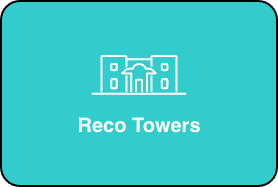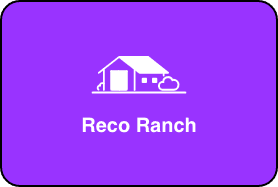Deciphering the Role of 12-Step Meetings at Reco Institute

Introduction to the World of 12-Step Meetings
Unveiling the Pillars of Recovery
In the expansive universe of addiction recovery, 12-step meetings have emerged as a cornerstone, providing a structured pathway to sobriety. These meetings, deeply ingrained within the fabric of recovery communities, offer not only guidance but also a sanctuary where individuals can share their experiences and find camaraderie. At RECO Institute, the essence of these meetings is intertwined with our comprehensive programs designed to nurture and sustain long-term recovery. Our approach ensures that those who seek refuge in sober living residences find both the comfort and structure necessary to traverse their recovery journey. By celebrating the small wins and nurturing a supportive environment, these meetings empower individuals to commit wholeheartedly to the recovery process.
The Genesis of the 12-Step Movement
The 12-step movement, a beacon of hope for many struggling with addiction, has its roots in the 1930s. Established by Bill Wilson and Dr. Bob Smith, the founders of Alcoholics Anonymous (AA), the movement sought to create a fellowship centered on mutual aid and spiritual growth. Today, its influence transcends alcohol addiction, encompassing various forms of substance use disorders. The framework of the 12-step meetings at facilities like RECO Institute reflects the original ethos while integrating modern therapeutic practices. This fusion of traditional and contemporary forms of support aids in addressing the complex nature of addiction, facilitating a multifaceted recovery strategy.
Why Delray Beach is a Beacon for Sobriety
Delray Beach, Florida, is not just a picturesque locale; it is a thriving hub for sobriety and recovery. The area’s unique blend of serene environments and robust recovery community makes it an ideal setting for those seeking solace from addiction. Here, facilities like RECO Institute harness the natural serenity of the surroundings to create a stable environment for recovery housing. As highlighted in various Delray Beach recovery programs, the location is pivotal in fostering a supportive network, where success stories are born and nurtured. The city’s commitment to recovery extends beyond residential treatment facilities, promoting a community-centric approach that amplifies the effectiveness of transition programs.
Navigating the Intricacies of 12-Step Meetings
Blueprint of a Typical Meeting
Fully understanding the dynamics of a 12-step meeting is crucial for those embarking on their recovery journey. A typical meeting is structured to cultivate a safe environment where participants can express their struggles and victories with alcohol or substance abuse. At the core, each session begins with the customary reading of the 12 steps and the 12 traditions, serving as guiding principles for those in attendance. As the meeting progresses, individuals are encouraged to share personal insights, fostering a spirit of openness and acceptance. This structured format is instrumental in creating a supportive environment that nurtures sobriety, allowing participants to find solidarity amidst shared challenges. Such gatherings are pivotal in promoting addiction recovery strategies in Delray Beach, further enhancing the healing process facilitated by peer support.
Roles Within the Fellowship Circle
Within the fellowship circle, each participant plays a unique role, contributing to the dynamic tapestry of recovery. Central to the gathering is the ‘chairperson’, who steers the session, ensuring it adheres to the established structure. Equally vital are the sponsors, individuals who have traversed the recovery path and mentor newcomers, offering personalized guidance and support. These roles cultivate an ecosystem of mutual aid, wherein each member contributes to the collective goal of achieving and maintaining sobriety. Additionally, the audience’s role is paramount, as listening serves to inspire and reinforce the shared values of recovery. This cohesive network underscores the essence of community integration in recovery, forging connections that transcend the confines of group meetings.
Peer-Led Meetings: Empowerment and Community
One of the most compelling aspects of 12-step meetings at the RECO Institute is their peer-led nature. By empowering individuals to lead sessions, a profound sense of ownership and accountability is cultivated. Such empowerment enriches the recovery experience, transforming passive participants into active leaders within the therapeutic community. This approach not only enhances personal growth but also fortifies the bonds of community, essential for long-term recovery. Through this model, participants learn the power of shared experiences, which are pivotal for fostering a nurturing environment conducive to healing. These peer-led addiction meetings exemplify how collaboration and mutual support are integral to overcoming the challenges associated with substance use disorders, ultimately crafting a resilient network of recovery warriors.


The Reco Institute’s Unique Approach to 12-Steps
Integration of RECO Institute Programs
At the heart of the RECO Institute lies an intricate fusion of traditional and modern approaches to recovery, specifically designed to enrich the 12-step experience. Our RECO Institute addiction recovery program provides a seamless integration of the 12-step methodology with evidence-based treatment modalities. This synergistic approach enhances the effectiveness of each participant’s recovery journey. By tailoring our treatment plans to include personalized therapeutic activities and peer support systems, we create an environment where clients can thrive. This alignment with the 12-step philosophy, coupled with structured addiction recovery options, equips individuals with tools essential for achieving and maintaining sobriety.
Mechanisms of Community Integration
Community integration plays a pivotal role in recovery at the RECO Institute, acting as a catalyst for sustained sobriety. By fostering community integration in recovery, individuals are encouraged to actively engage with both their peers and the broader recovery community in Delray Beach and beyond. This engagement not only strengthens individual resilience but also builds a supportive network essential for long-term recovery. Participants participate in various community-centric activities that amplify the sense of belonging and collective progress. Such strategic collaboration enhances the healing process and bridges the gap between recovery housing and community, ultimately leading to profound transformations in personal recovery milestones.
Experiential Learning and Long-term Recovery
Experiential learning is at the forefront of RECO Institute’s approach, encouraging individuals to engage with their recovery journey actively. Through opportunities for hands-on involvement in activities aligned with recovery principles, participants gain invaluable insights into their personal processes and develop resilience. This practice reinforces the concepts introduced during 12-step meetings and further solidifies the learnings in real-world contexts. By embedding experiential learning within our structured programs, we facilitate the acquisition of practical skills vital for long-term recovery. The commitment to this approach ensures that individuals are not only equipped to maintain sobriety but are also empowered to navigate life’s challenges with newfound confidence and adaptability.
The Transformational Journey through 12-Steps
Recovery Milestones and Personal Growth
Recovery through the 12-step program is marked by significant milestones that indicate personal growth and transformation. Each step is a guidepost, guiding individuals in recognizing and acknowledging their patterns of addiction. This journey not only tackles the surface-level behavioral changes but also delves deeper into emotional and spiritual healing. As participants progress, they often discover new dimensions of their identities, a key component for achieving long-term recovery. The drive towards these holistic recovery milestones strengthens resilience and fosters a sense of accomplishment that is crucial for sustaining sobriety. At RECO Institute, the safe and supportive environment propels individuals towards these breakthroughs, reinforcing the interconnectedness of personal growth and recovery milestones.
Accountability and Goal Setting
In the sphere of addiction recovery, accountability and goal setting are cornerstones that support the ongoing sobriety of individuals. 12-step meetings encourage participants to hold themselves responsible for their actions while setting realistic goals that facilitate progress. This accountability is enhanced through sponsorship, where experienced members mentor newcomers, guiding them in their journey. Setting personalized goals helps individuals stay focused and motivated, crucial elements in the path of sobriety. Engaging in group therapy and recovery sessions can further accentuate these processes, offering a forum for sharing challenges and victories alike. RECO Institute emphasizes this practice within its programs, training individuals to align their personal objectives with the broader goals of sustained sobriety.
Healing Environment: The Heart of Reco
The serene and nurturing environment at the RECO Institute is central to the healing journey that participants embark upon. Nestled in Delray Beach, the institute offers a sanctuary that supports the delicate process of recovery. The integration of 12-step methodologies within a structured and supportive setting creates an ecosystem where healing is not just possible but inevitable. The ambiance, coupled with structured programs, not only facilitates emotional and spiritual growth but also inspires participants to maintain their commitment to sobriety. This healing environment at the heart of RECO plays a pivotal role in fostering a sense of community and belonging, vital for conquering the multifaceted nature of addiction recovery.
Overcoming Challenges through 12-Step Engagement
Relapse Prevention and Support Networks
Navigating relapse prevention is critical to sustaining recovery through the 12-step program. At the RECO Institute, participants are empowered with relapse prevention strategies that are intricately woven into their journey. These strategies are bolstered by the robust support network inherent in 12-step meetings, where individuals find strength in shared experiences. Having access to a diverse community of supportive peers helps reinforce the commitment to sobriety, providing a safety net for those vulnerable moments. By integrating structured support mechanisms, RECO Institute ensures that individuals have the tools to combat potential triggers and maintain their sobriety.
Emotional Support Systems and Recovery Motivation
Emotional support systems play a pivotal role in 12-step recovery programs, acting as the backbone of motivation for individuals striving for sobriety. At RECO Institute, these support systems are cultivated through fellowship circles and shared narratives within group meetings. Engaging in emotional support systems in recovery enables participants to process emotions healthily, thereby reinforcing their recovery motivation. Experienced mentors and sponsors further enhance this emotional safety net, guiding members through the complexities of their emotional landscapes. Such compassionate guidance fosters resilience and motivates individuals to stay focused on their path, anchoring them in the principles of sobriety and personal growth.
Maintaining a Structured Recovery Program
A well-structured recovery program is essential for fostering consistency and commitment in 12-step engagements. The framework provided by the RECO Institute incorporates both traditional and innovative approaches to support long-term sobriety through structured addiction recovery programs. By requiring active participation in sober living residences and incorporating elements of the 12-step methodology, participants are equipped with a routine that instills healthy habits. This structure is instrumental in facilitating progress, nurturing the discipline necessary to overcome addiction. Through consistent engagement, individuals not only adhere to their recovery plans but also build a strong foundation that supports their ongoing transformation.


Conclusion: Embracing the Journey of Sobriety
The Continuum of Care in Sober Living
The journey of sobriety is not a solitary path but one enriched by a continuum of care options like those found at RECO Institute. By incorporating sober living strategies into structured recovery programs, individuals are assured of a supportive transition from intensive care to independent sobriety. The environment within sober living homes fosters a secure setting where individuals can build resilience and develop life skills that are crucial for sustaining recovery. As residents engage in these programs, they are not only recipients of care but active participants in a transformative journey that prepares them for long-term sobriety.
Looking Forward: A Lifetime of Sobriety
Embarking on a lifetime of sobriety is a commitment fortified through the foundational principles learned in 12-step meetings and the comprehensive support offered at RECO Institute. By setting realistic goals and engaging in community activities, individuals can envisage a future where sobriety becomes a way of life, not just a milestone to be achieved. This forward-looking perspective is integral to maintaining a sober life, wherein the challenges of addiction are transformed into stepping stones toward personal growth and fulfillment. As one navigates the landscape of sober living in Florida, continuous support and engagement encourage a proactive approach to overcoming obstacles and celebrating personal victories.
The Legacy of the 12-Step Pathway
The 12-step pathway provides more than just a recovery approach; it offers a legacy of healing and empowerment that has touched countless lives since its inception. Programs like those at RECO Institute honor this legacy through meticulous integration with contemporary therapeutic practices, creating a robust framework for holistic recovery. The enduring influence of this pathway underscores the profound impact of community and shared experiences in addiction recovery. By perpetuating this legacy, RECO Institute ensures that the tradition of mutual support and collective growth remains a beacon of hope for individuals seeking to transform their lives. Embracing this pathway is a testament to the resilience and potential within each person to redefine their journey through sober homes’ success near Delray Beach.
Frequently Asked Questions
Question: How do 12-step meetings at RECO Institute integrate with other addiction recovery strategies?
Answer: At RECO Institute, 12-step meetings are seamlessly woven into a comprehensive framework of addiction recovery strategies. Our approach combines traditional 12-step methodologies with evidence-based treatment modalities to enhance the recovery journey. Participants benefit from a multifaceted program that addresses both the emotional and structural aspects of sobriety. These peer-led meetings empower individuals with the skills necessary for sustained recovery, supported by a strong community network and expert-guided sessions that reinforce personal growth and accountability in sobriety.
Question: What makes Delray Beach a unique location for 12-step recovery at RECO Institute?
Answer: Delray Beach, Florida, provides an idyllic setting for recovery, offering a serene environment coupled with a robust recovery community. Facilities like RECO Institute harness the natural tranquility of the area to create stable environments conducive to sober living. Our location is pivotal in fostering community integration, where supportive networks amplify the effectiveness of our transition programs. The city’s commitment to recovery, alongside our structured recovery programs, creates a nurturing environment where individuals are encouraged to engage deeply with their recovery journey and achieve long-term sobriety.
Question: Can you explain the importance of peer-led meetings in the 12-step recovery process at RECO Institute?
Answer: Peer-led meetings are a cornerstone of the 12-step recovery process at RECO Institute. These meetings empower individuals by allowing them to take active roles in leading sessions, fostering a sense of ownership and accountability. This empowerment enriches the recovery experience, transforming participants from passive attendees into active leaders within the therapeutic community. Through shared recovery experiences, attendees find strength and solidarity, which are essential for overcoming substance abuse challenges. This dynamic adds depth to our addiction support network, promoting sustained community engagement and personal transformation.
Question: How does RECO Institute ensure a healing environment is maintained for participants?
Answer: The healing environment at RECO Institute is a carefully curated blend of serene surroundings and structured support systems, designed to nurture the recovery journey. Nestled in the heart of Delray Beach, our facilities provide a sanctuary where participants can focus on personal growth and sobriety. Our integration of 12-step methodologies within a supportive framework aids emotional and spiritual healing. The ambiance, coupled with structured addiction recovery options, creates an ecosystem that fosters a sense of community and belonging, indispensable for conquering the multifaceted nature of addiction recovery.
Question: In what ways do 12-step meetings aid in relapse prevention at RECO Institute?
Answer: 12-step meetings at RECO Institute are integral to relapse prevention, offering a platform where participants can connect with a robust support network. These meetings promote shared experiences and open dialogue, which reinforce the commitment to sobriety and provide essential coping strategies against potential triggers. The meetings are complemented by structured addiction recovery programs that instill discipline and consistency. By blending these elements, RECO Institute equips individuals with the tools and support necessary to navigate the challenges of recovery and maintain long-term sobriety.















